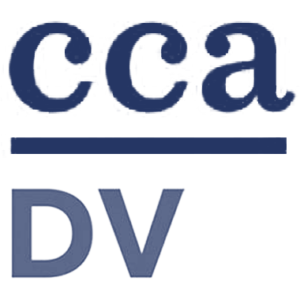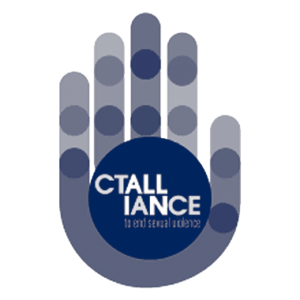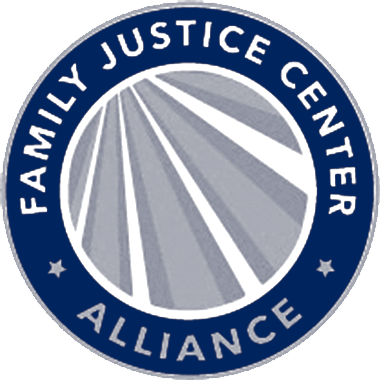The Center for Family Justice
Advocacy Services
Advocacy, Counseling + Clinical Services
The Center’s Advocates are counselors trained and certified specifically in the area of domestic and sexual violence. They empower and counsel victims and survivors through emotional support, safety planning, case management services, and advocacy within medical, court, child welfare and other systems of care.
Our role is to help you navigate the services available to you and your family. The best way to do this is by talking to us directly. Please take time to learn more about our Advocacy Services and the idea of a safety plan. When you’re ready give us a call!
We provide both domestic violence and sexual assault services to victims and their children.
Services provided in both English and Spanish include:
- Intake and assessment;
- Development of safety plans to address specific situations;
- Accompaniment to the hospital following an assault;
- Accompaniment to police and courts;
- Short-term individual counseling and support groups;
- Assistance with filing compensation claims with Victims Services.
For adults: Adult clients are provided with information and referrals for available resources including health clinics, mental health services, housing information, public transportation, legal resources, immigration referrals, food and clothing, child care, youth services and job training.
| For additional info or to speak with an advocate, call our main line (203) 334-6154. (Hours: Mon – Fri, 9AM – 5PM) |
|---|
The Family Violence Victim Advocacy program (FVVA) provides direct services to each victim that comes through the Golden Hill Street Domestic Violence Criminal Court in Bridgeport.
The Center’s Criminal Court Advocates help victims understand and negotiate the legal process; ensure that victims have a safety plan in place that will protect them at each stage of the legal process; and link victims to appropriate supportive services at The Center or other agencies.
Direct services include:
- Information regarding the court process;
- Information about protective orders and the application process for a civil restraining order;
- Telephone or in-person counseling, including support in designing and implementing a safety plan;
- Referrals for emergency shelter and support groups;
- Referrals to appropriate agencies for collateral services;
- Referrals for services to children and dependents of the victim;
- Information regarding the application for criminal injuries compensation;
- Information regarding the availability of ongoing services.
| For additional info or to speak with an advocate, call our main line (203) 334-6154. (Hours: Mon – Fri, 9AM – 5PM) |
|---|
The Civil Court Advocate, stationed at the Main Street Civil Court in Bridgeport, assists clients with restraining orders, addresses divorce and custody issues, and counsels the client. In addition, the Civil Court Advocate provides in-court accompaniment and communicates important elements of the case to the judge.
Additional direct services include:
- Information about the court process;
- Telephone or in-person counseling, including support in designing and implementing a safety plan;
- Referrals for emergency shelter and for support groups;
- Referrals to appropriate agencies for collateral services;
- Referrals for services to children and dependents of the victim;
- Information about criminal injuries compensation;
- Information on ongoing services.
| For additional info or to speak with an advocate, call our main line (203) 334-6154. (Hours: Mon – Fri, 9AM – 5PM) |
|---|
A safety plan is a personalized and practical plan that helps identify steps you can take to better protect you and your children at home, school, work and in the community. It will also help to reduce your risk of being hurt.
You can’t control your partner’s abusive behavior but you can take steps to protect yourself and your children from harm. Whether you decide to stay or to end the relationship, The Center of Family Justice can help you create a safety plan. The changes may be big, such as going to a confidential shelter or changing schools. Or smaller changes can include changing your e-mail passwords or the route you take to work. Proactive planning on how to safely escape, protect your children, and get assistance and support can enhance your safety if a violent incident occurs.
Concrete Examples of a Safety Plan
- If you decide to remain at home, here are some helpful tips:
- Keep a list of names and numbers to call in an emergency – such as police, hospital, family – and share it with children or others in the home who may be at risk;
- Keep an extra set of car and house keys in a secret, safe place;
- Ask neighbors to call the police if they hear strange sounds or think something is wrong in your home;
- Keep a cell phone hidden in a safe place for emergencies;
- Have a code word or sign that alerts co-workers, family, or friends that they should call the police;
- During an argument, move to a room with easy access to an exit (not the kitchen or bathroom, if possible);
- Take pictures of bruises, sign and date them; record dates and times of threatening phone calls or confrontations; and save threatening texts or answering machine messages.
| For additional info or to speak with an advocate, call our main line (203) 334-6154. (Hours: Mon – Fri, 9AM – 5PM) |
|---|
From our smartphones to computers to the Internet – we rely and trust in technology every single day. The Safety Net Project from the National Network to End Domestic Violence has created some useful toolkits that are designed to help you understand how technology can be misused and how you can stay safe. These tips are also useful for victims of sexual abuse and human trafficking.
The information below should not replace seeking assistance from our staff at CFJ or Law Enforcement.
Safety First:
- Consider using devices that an abuser does not have access to and from a safe location such as a public library, coffee shop or the home of a trusted friend.
- Use caution when turning off or discarding technology that you feel is being used to track or spy on you. Abusers may escalate their control and abuse should they feel that they are losing control over you.
- Trust your instincts. If someone knows a little too much information about you, they could be getting information about you from a variety of sources including social media, email accounts, banks accounts, location tracking or other online sources.
- Documentation can help show police and courts a pattern of behavior that fits certain legal definitions. Keep the documentation stored in a safe place away from your abuser and if using any form of technology to track the information, refer to the Safety First section of this toolkit to help keep you and your information safe.
- Change passwords and usernames to your accounts and/or create new accounts if possible.
- Reach out to The Center for Family Justice for help. If you find yourself in immediate danger, call 911.
- For more information on this Toolkit, visit The Safety Net Project.
The Center for Family Justice wants young people at area college campuses to know that help is just a phone call away if they have suffered physical or sexual abuse, harassment, or stalking.
The Center’s Campus Advocacy program is free and confidential. Our Campus Advocates work on-site at Fairfield and Sacred Heart Universities, the University of Bridgeport, and Housatonic Community College, providing crisis and supportive services to victims and survivors who have been impacted by abuse including interpersonal and relationship violence, sexual assault and rape, stalking, emotional abuse, sexual harassment and coercion, and cyber abuse (including the sharing of images and videos without consent).
How Campus Advocates Can Help:
- 24/7 crisis hotlines;
- One-on-one counseling;
- Emergency restraining order assistance;
- Community education and trainings on topics such as consent, relationship abuse and more;
- Legal services;
- Campus-based survivors’ support groups;
- Support and accompaniment at meetings with law enforcement, school administrators and campus hearings;
- Connections to community resources.
We Believe You. Many victims and survivors don’t come forward out of fear of judgment and repercussions for reporting their abuse. Some may also question whether their experiences constituted a crime or if they were somehow to blame for their trauma. We begin our work with clients by validating their experiences, listening to their concerns, and honoring their choices in a nonjudgmental way. In other words, we believe them.
Abuse On Campus Has Many Forms Including:
- Intimate partner and dating violence;
- Sexual assault and rape;
- Stalking;
- Emotional abuse;
- Sexual harassment and coercion;
- Cyber abuse (including the sharing of images and videos without consent)
Need Help? Whether you or a friend need our services or have questions about how CFJ Campus Advocacy can help, we are here.
The best way to reach us is via direct message on our Instagram @CFJCampusAdvocacy. We hold office hours on the campuses of the colleges and universities we serve during the academic year. You can also call CFJ’s main number, 203-334-6154, and ask to speak with a Campus Advocate. |
|---|
Let CFJ become your lifeline.
Free, confidential helplines + hotlines are available. Please call us at 203-334-6154 or one of the following:
Domestic
Abuse
Sexual
Assault
Child Abuse
Care Line
In an emergency? Dial 911 now.






